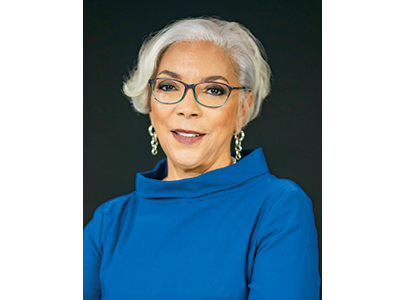Social media abuse costing journalists their own credibility
Bart Pfankuch
May 1, 2021


Of all the threats to the credibility of American journalists today, and there are many, the most damaging might be the result of a purely self-inflicted wound.
The misuse of social media by reporters and editors — particularly on Twitter and Facebook — has made it easy for critics of the media to find fodder to back up claims that journalists are inherently biased.
In many cases, reporters have forgotten or openly flout guidelines drilled into us by professors and mentors to avoid even a hint of bias. Those include: Keeping our opinions to ourselves; refraining from commenting on the news; maintaining a clear separation between news and editorials; letting the published work speak for itself; and allowing people to make up their own minds about issues we cover.
These days, it's easy to find public posts on Twitter or Facebook where a reporter or editor opines either subtly or overtly on issues they cover or topics in the news. They do this for several reasons, none of which outweighs the damage they are doing to their own credibility and the public’s trust in the media.
It might be to develop a larger audience; they may feel smarter than others; they might try to impress their peers or like-minded readers with their supposed wit; they may even be encouraged by their employers to develop an online “personality.”
The level of commentary and unprofessionalism unveiled by journalists on social media has reached epidemic proportions. Journalists tweet or retweet items with swear words; they argue with commenters; they try to be cute or funny or cynical or snarky in text they publish with their posts; they make petty complaints about access to officials or perceived barriers to doing their jobs.
Some reporters share the work of colleagues or competitors and fawn over one another’s work or add a sense of communal commentary. Some reporters can't resist pointing out the supposed hypocrisy of public officials without any real reporting to back it up. Reporters tell jokes or make insider comments about the news or newsmakers.
Readers are more sophisticated in how they access and process news these days, and they see these behaviors for what they are: not news, but opinion.
Readers are keen to bylines and know how to find reporters on social media to assess if a journalist is credible or biased. Many media members have made it easy for readers and viewers to classify them or their entire organization as biased. Often, it is simply the impression of bias that is very destructive.
Here are some basic tips to avoid giving away your credibility by misuse of social media:
- Post only your work. Don’t try to be clever, funny or cynical in the text associated with a post; limit posts to a link to the published piece.
- Retweeting and post-sharing are perilous. The caveat many journalists use, “Retweets are not endorsements” or similar language means nothing to a news consumer trying to evaluate the credibility of a journalist. Retweets are endorsements, no matter what we say.
- Don’t try to be funny. What is humorous is in the eye of the consumer and might not translate well in print. Plus, journalists aren’t that funny or witty in most cases, so just can the comedy.
- Don’t share colleagues’ stories. By sharing and implicitly endorsing one another’s work, journalists are creating a sense of a clique or a pack mentality that many consumers already feel is driving media coverage in one direction or another on complex or controversial issues.
- Keep personal posts professional. I might be a social-media Scrooge here, but revealing too much of your real life or real self on social media opens the door for readers to draw conclusions about your personal views or positions.
- Stop airing grievances. It’s long understood that news consumers don’t care about barriers to getting information or about questions you wanted to ask or did ask and didn’t get answered. They just want results; they just want the news.
- Manage your manager. If your employer pushes you to create a defined social media personality, don’t complain. Instead, just create a personality based on professionalism and impartiality.
- Employ a simple test. If you wouldn’t say something in your article or broadcast, if something would feel out of place or inappropriate in your published material, then it is not right for social media, either. Leave it out.
Bart Pfankuch is content director for South Dakota News Watch, an online public-service journalism group. Contact him at bart.pfankuch@sdnewswatch.org.









